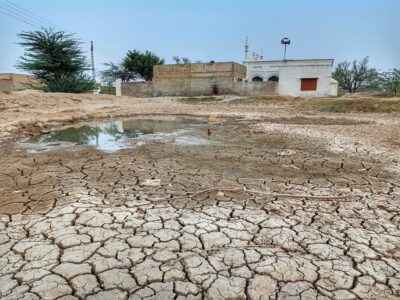By Justine Dowden and Yanis Ben Amor

When Sunita, a student in rural South India, got her period for the first time she was sure she was on the brink of death. For the previous 12 years of her life, she had always known blood to be a sign that someone was hurt or in danger; so naturally, since no one had told her what to expect, she assumed something was seriously wrong. At 14, Sunita can now laugh at herself for thinking that menstruation was a death sentence. But this nonchalance is a thin veil over the continuing serious concerns and limitations tied to menstruation in her resource-poor area. These include ancient cultural beliefs about menstruating women contaminating anything they touch, not having money for sanitary pads, and not having a place to wash at school where there is often no running water.
But not all menstrual hygiene management issues are as seemingly intractable as taboos, poverty, and failing infrastructure. For one, Sunita didn’t have to predict her imminent demise because she was in the dark about what puberty had in store for her.

That’s where we come in. My team at Columbia University is implementing a sexual and reproductive health curriculum at Sunita’s school—25 total in rural Telangana state—that uses games, props, and activities to help girls learn about the ins and outs of every weird new phenomenon that puberty brings. Our program–titled Yuva Nestham, which means “advocate for youth” in the local language—teaches these classes because we believe that being equipped with scientifically accurate information will help empower students to maintain a healthy changing body in the face of immense challenges.
And, like teens the world over, Sunita and her classmates have a lot of questions. Whether it’s acne, cramps, body odor or raging hormones, our team of Adolescent Health Assistants have answers. Participants have the opportunity to talk one-on-one with a trained professional where they can get advice about, for example, how to manage cramps at home instead of missing school for a hospital visit. Simply knowing that cramps just mean your uterus is contracting to empty itself out can make them less scary and prevent the time, money and worry expended to treat them.
Yuva Nestham is intervening at this critical point of adolescence to implement classes and counseling because—as International Women’s Day reminds us—education has continuously proven to be one of the strongest social vaccines we have to combat fear, misunderstanding and preventable health problems. Today and every day we should honor Sunita, all our participants, and girls everywhere who are working hard to arm themselves with the knowledge they need to grow into healthy women who make informed decisions about their bodies.
Justine Dowden and Yanis Ben Amor work at the Center for Sustainable Development at Columbia University.



